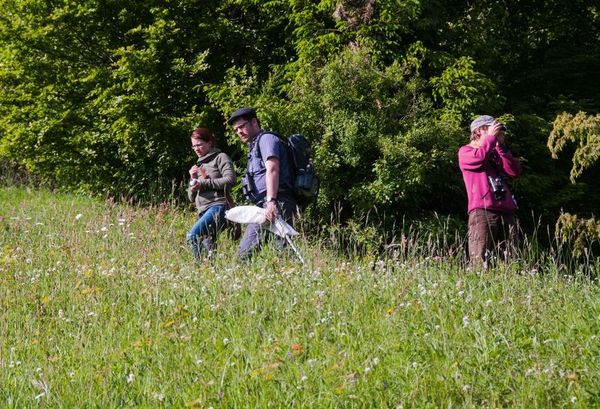Dossier
Recording biodiversity in agricultural landscapes
Petra Dieker and Stefan Lange | 21.06.2022
Changes in land use and biodiversity must be known if a trend reversal in species decline is to be achieved. This is the purpose of the nationwide monitoring of biodiversity in agricultural landscapes.
Around 50 % of Germany's land is currently used for agriculture. Therefore, on the one hand, agriculture has an important role to play in conserving and promoting the biodiversity that has been formed through human cultivation over the centuries. On the other hand, the increasingly intensive use of agricultural landscapes is blamed for the progressive decline in biodiversity.
Until now, there has been a lack of representative and scientifically reliable data on which to base statements on changes in land use, agricultural structure and the biodiversity that depends on them. This knowledge is a prerequisite for evaluating the effectiveness of agri-environmental policy support instruments and thus reversing the trend of species decline. So here, too, the following applies: you can only improve what you can measure.
With the nationwide monitoring of biodiversity in agricultural landscapes (MonViA), we are closing this gap: Together with the Julius Kühn Institute (JKI) and the Federal Agency for Agriculture and Food (BLE), we are developing monitoring programmes in a pilot phase until 2023 to allow statements to be made in future on changes in the agricultural landscape and on the state and development of biodiversity. With this scientifically based biodiversity monitoring, we want to answer the following questions:
- How is biodiversity developing in open agricultural landscapes under the influence of agricultural production, land use and agricultural structural change?
- How does the change in biodiversity affect the performance and stability of agricultural production systems?
- How do agricultural and environmental policies affect biodiversity, and what measures should be recommended to policy-makers?
Within the framework of Citizen Science-based monitoring programmes, volunteers can participate and contribute to improving knowledge about biodiversity in agricultural landscapes in Germany.






